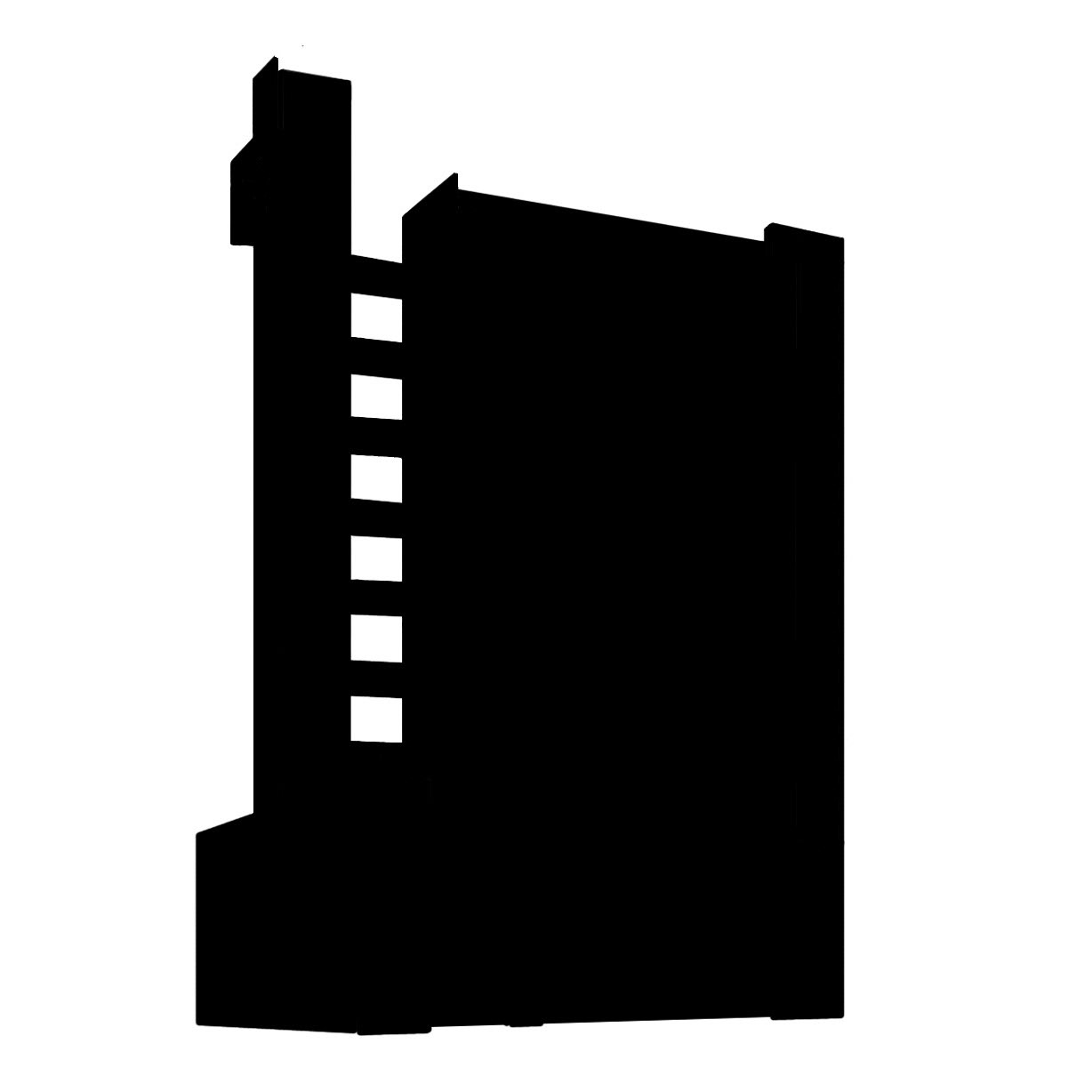The Final Report
You can read or download the final report here
History and background of 'Develop Trellick'
The following content was live on this website during the delivery of the 'Develop Trellick' project
The Trellick Tower Residents’ Association is collaborating with University College London and the Museum of London on a research project.
This project responds to some of the discussions we have had recently around proposing a community-led vision for regeneration and development on the Trellick Tower and Cheltenham Estate, which could potentially be presented to RBKC for their consideration.
The aim of the project is to co-produce a Community Plan with communities living/working at or near the Trellick Tower and the Cheltenham Estate - a community-led brief and vision for the regeneration of their neighbourhood. This includes how the participatory process should be, how communities should participate in decision-making, how the process should reach the diversity of communities in the area, which are the spaces that people value, what needs to improve, and what kind of development they would want or accept.
This project will involve four co-design workshops, along with other activities.
The next co-design workshop - WORKSHOP 3 'Arts & Culture at Trellick?' - will take place on Thursday 22nd of February at 6:30pm– 9pm in Morley College (Wornington Road, W10 5QQ).
Doors will open at 6pm and we will start promptly at 6.30pm.
The workshop will include:
* Co-design workshop on the importance of arts and culture on the estate, including graffiti, skateboarding, music and other forms
* Summary of previous workshop results
* Looking at alternative spaces for the development and support of arts and culture in the area of Trellick & Edenham and Meanwhile
* Co-design workshop on the importance of arts and culture on the estate, including graffiti, skateboarding, music and other forms
The project is led by Dr Pablo Sendra, Associate Professor at UCL, who has led various community co-design processes across West London, supported by a Steering Group of local residents and community members.
WORKSHOP DATES
Workshop 1: “What’s great about Trellick?” – TUESDAY 12th December 2023
Workshop 2: “What do you want at Trellick?” – THURSDAY 25th January 2024
Workshop 3: “Art and Culture at Trellick” – THURSDAY 22nd February 2024
Workshop 4: “Results and Community Power” – THURSDAY 7th March 2024
Final Presentation – THURSDAY 28th March 2024
Time: 6:30pm–9pm.
Venue: Morley College, Wornington Rd, W10 5QQ.

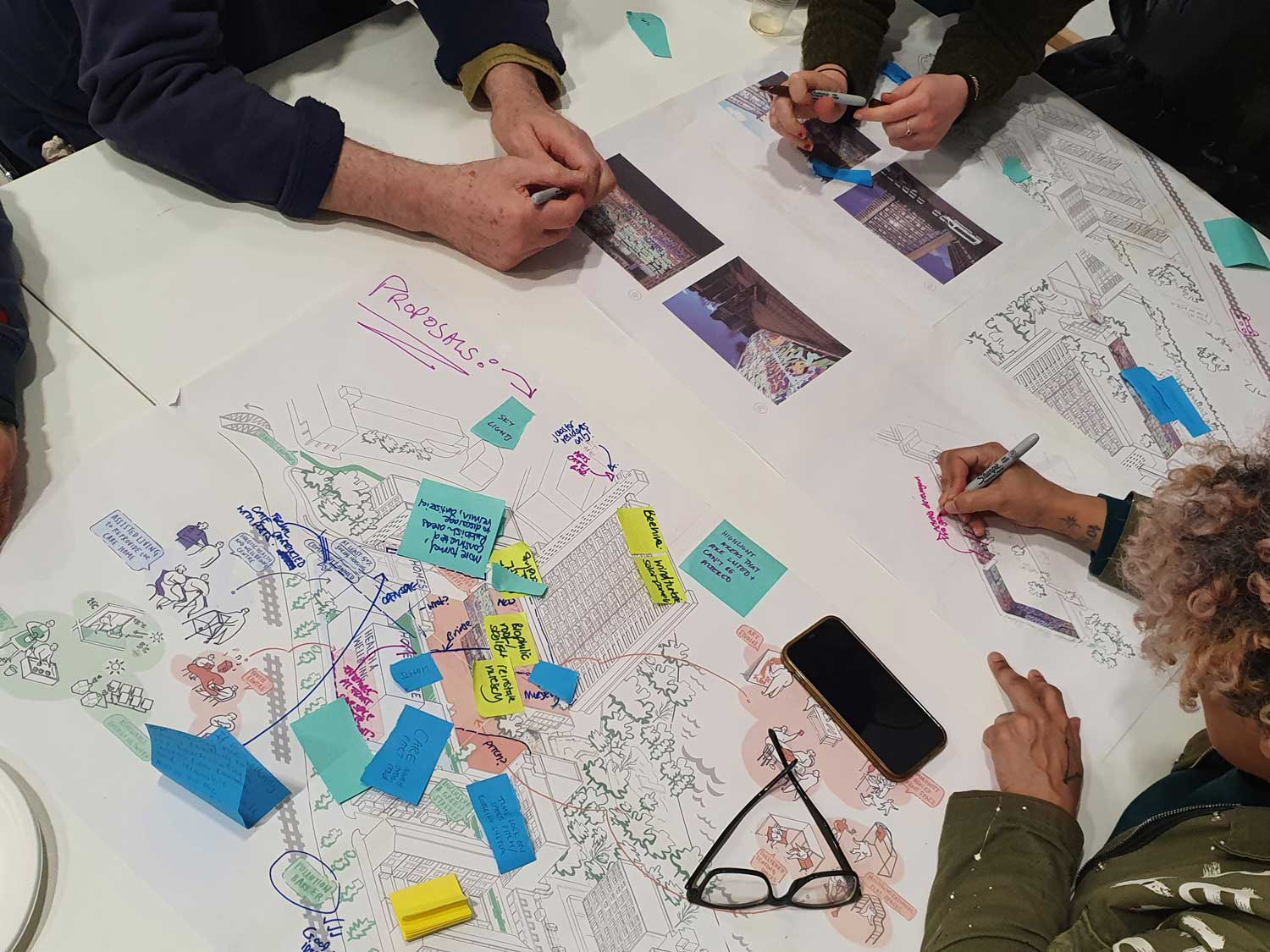
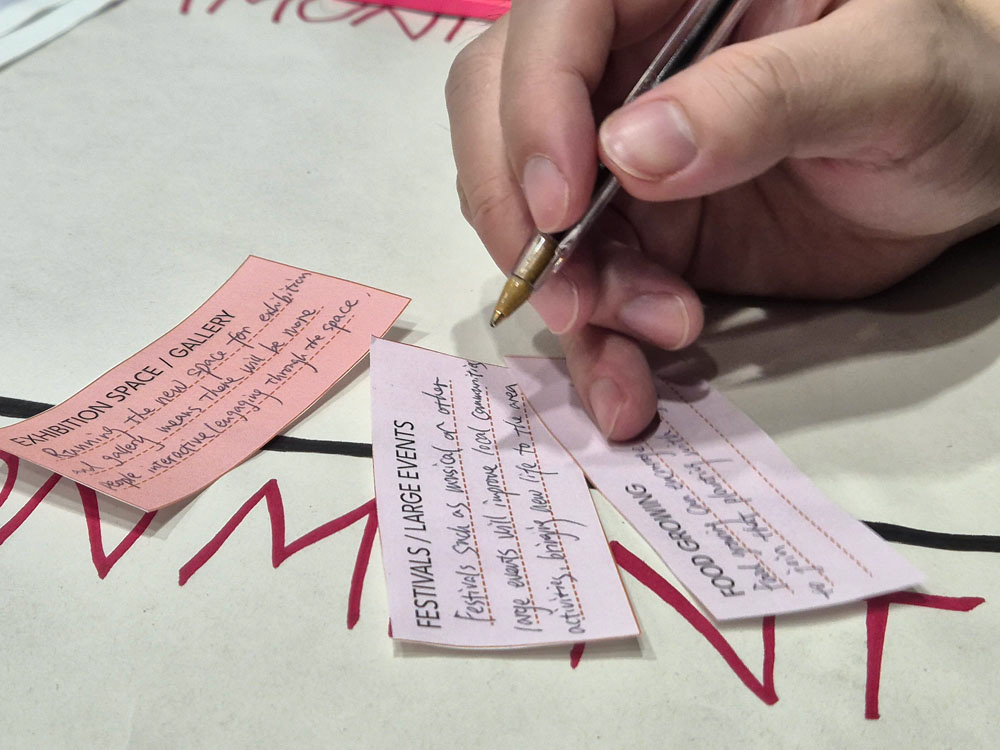
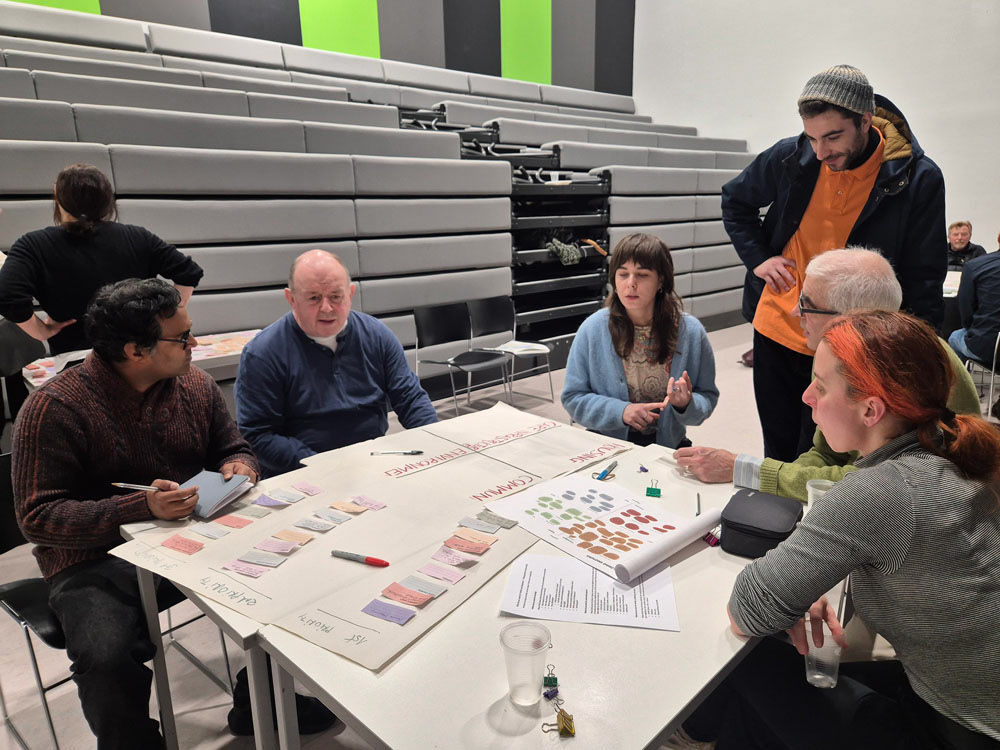
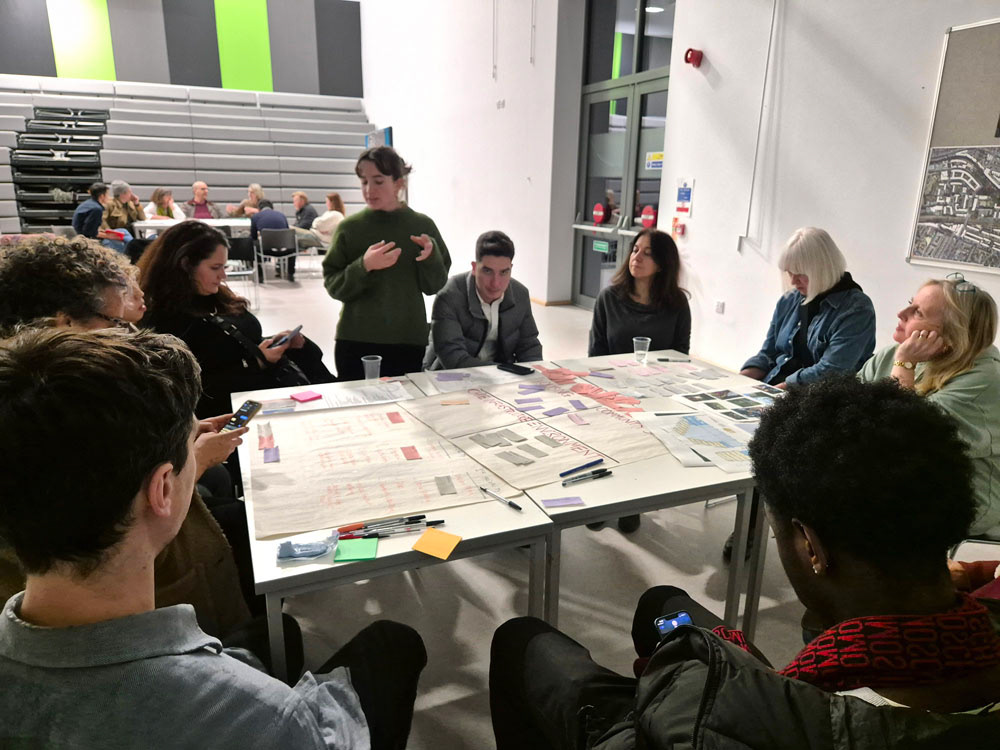
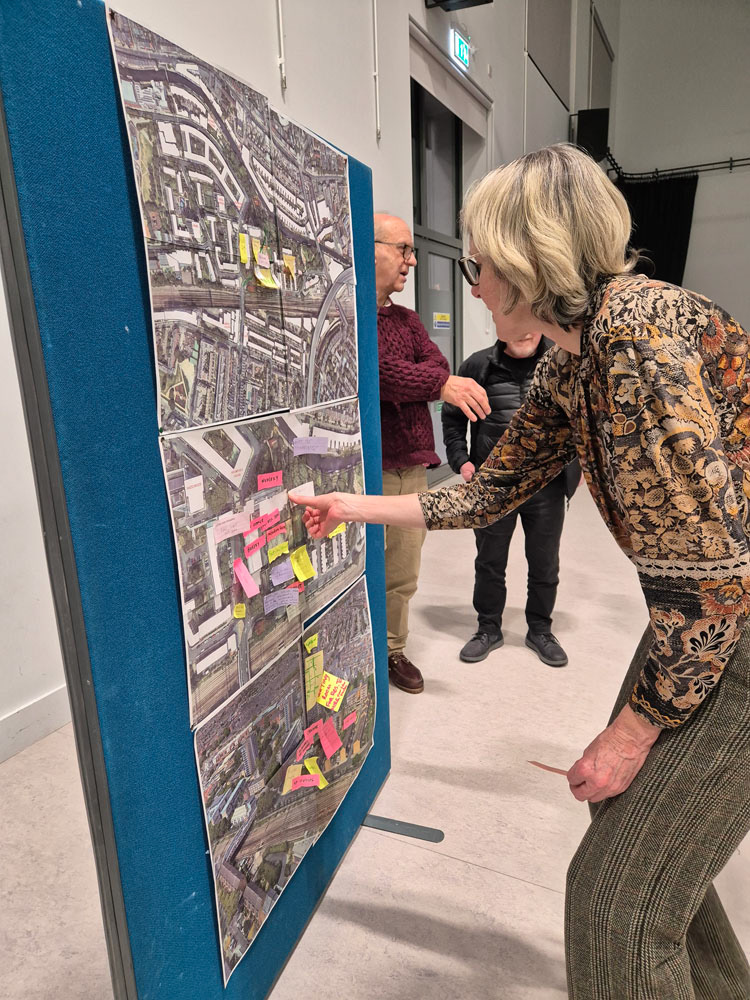

MORE ABOUT THE PROJECT
THE CONTEXT OF HOUSING DEVELOPMENT IN LONDON
Social housing estate regeneration has been heavily debated and contested in London since the turn of the 21st century. Scholars such as Paul Watt or Loretta Lees, as well as campaign groups/networks such as Just Space or Focus E15, have argued that estate regeneration processes have an effect of social cleansing and displace local residents.
Local authorities, as well as the Greater London Authority, have seen in estate regeneration an opportunity to address London’s housing crisis and deliver housing numbers that meet their targets. This has taken place with different approaches and effects on the population. Some local authorities have carried out such regeneration schemes by selling off the land to private developers, others have entered into joint ventures, while others – quite rare until recently – have led the regeneration from the local authority. Some regeneration schemes have taken the demolition and redevelopment approach, while others have taken an approach that combines refurbishment with infill development to densify the estate. Most of them have in common that they aim to densify the housing estate and deliver as many homes as possible. This concentration on the number of homes results in disregarding the relevance of social infrastructure (spaces where people can gather and which facilitate social connections), which is normally reduced or not extended in such densification schemes, resulting in less social infrastructure per resident.
THE MUSEUM OF LONDON
The Museum has a long track-record of addressing questions concerning regeneration and changes to the built environment. Crucially, the 'Tower Blocks’ (1999) and 'Whatever happened To Council Housing' (2004) exhibitions charted the rapidly changing face of public housing in the capital and the issues that councils faced in regenerating their estates.
More recently, ‘Grime Stories: from the corner to the mainstream’ (17 June- 4 December 2022) has offered a more bottom-up perspective: exploring regeneration in connection to music production and young people’s experience of their local environments.
Despite these representational efforts, the museum has recognised their limitations in documenting the processes and practices of resident-led responses to regeneration. This research project intends to fill this gap by exploring the intersections between regeneration and community activism in a specific area.
An interest for local community activism is not new to the museum, as manifested by their large collection of protest material spanning from the Votes for Women campaign to the present days. Recently, the Curating London programme (2018-2023) has instigated a number of research and collecting initiatives focused on contemporary activist practices across the city. Examples are the ‘We The People’ project exploring the legacy of grassroots activism in Brixton in partnership with the Advocacy Academy, and their extensive work with food delivery drivers in East London as part of the ‘Inequality, Class and the Pandemic’ project run in partnership with King’s College London.
UCL
This piece of research will focus on the participation of residents on the elaboration of proposals for regeneration. Previous research (see Sendra, 2018; Sendra & Fitzpatrick, 2020) has shown the lack of genuine participation of residents in estate regeneration, which is often limited to a superficial consultation, to a tokenistic approach (see Arnstein, 1969), or to voting yes or no to predefined proposals with little resident input. Research has also shown the capacity of residents to self-organise, contest top-down schemes, and propose community-led alternative approaches (see Sendra, 2018; Sendra & Fitzpatrick, 2020). Working in partnership with professionals, academics, and other campaign groups, social housing residents have managed to propose community-led schemes that manage, in some occasions and to a certain extent, to change the approach of the local authority to regeneration.
Our team at UCL has worked in partnership with community groups to develop Participatory Action Research projects and co-produce proposals for their neighbourhoods. From those experiences, Pablo Sendra published “The Ethics of Co-design” (Sendra, 2023), which establishes a series of principles on how to genuinely and ethically co-design proposals with communities.
This piece of research aims to apply these principles of ethical co-design to the case study of the Trellick and Cheltenham Estate, located in the Royal Borough of Kensington and Chelsea (RBKC). During the Covid-19 pandemic, the local authority was developing proposals to densify the housing estate. The proposals received opposition from residents and local communities and the council eventually withdrew the proposals. (You can read more about that here on the 'CAMPAIGN' page)
RBKC has been using the term “co-design” more frequently recently, which is now included in tendering processes and which form part of some of the officers’ job titles. However, as Sendra (2023) explains, there is a risk that “co-design” can become meaningless if this does not imply genuine co-creation with local communities.
TIMELINE
Timeline:
Duration of the project: 1 November 2023 – 31 March 2024
Duration of the project: 1 November 2023 – 31 March 2024
1 November– 30 November: Outreach strategy: connecting with different communities in the area. This will be more intense in this first month and will continue throughout the whole duration of the project.
1 November – 30 November: Formation of the community steering board, its terms of reference and its life beyond the project. Monthly meetings with them during the duration of the project.
TUESDAY December 12th: Co-creation workshop 1.
THURSDAY January 25th: Co-creation workshop 2.
THURSDAY February 22nd: Co-Creation workshop 3.
Mid to Late-February: Elaboration of preliminary proposals.
THURSDAY March 7th: Co-Creation workshop 4 and feedback session.
Late March: Elaboration of final report and related outputs, which will include a strategy to use the results to the project.
THURSDAY March 28th: Final event.
This project is funded by the Museum of London. This funding covers:
A Research Assistant, to undertake research informing co-design and community-led brief/vision
The running costs of the workshops
A brief/vision as a project outcome
The costs of hospitality and project support material
Dissemination of the output and processes at a conference/dissemination event
Supporting work is funded by the GLA as part of the 'Building Stronger Communities' fund.
